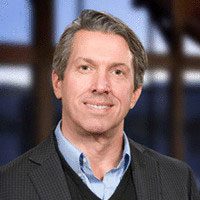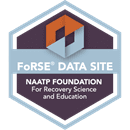Finding Recovery Through Service
By Megan Tackett
Sopris Sun Staff
One of the men a group of Jaywalkers encountered on a recent Houston service trip was living in his car after the flooding (the car had also flooded, but it provided better accommodations than his destroyed home).
“Insurance wasn’t helping,” said Cordes Symmes, Solutions Program coordinator at the Jaywalker Lodge sober house. “He’s eating mangoes that he’s picked off a tree. He doesn’t know what to do. I can’t imagine how somebody lives like that, [but] you see it.”
Months after Hurricane Harvey devastated the Houston area — affecting about a third of residential units — there are still more than 47,000 displaced people living in hotels and motels, according to a Nov. 22 article by Rebecca Elliott published in the Houston Chronicle. Tens of thousands more continue to struggle to eek out an existence in what remains of their homes due to lack of other options.
Symmes and five Jaywalker clients made the trek down to Houston to help rebuild what they could. The organization is already planning a return trip in February.
“This past trip was destruction,” he said of the group’s teardown efforts. “Now we’re going to do construction. We’re going to help put up drywall and help the staging along the way of that process. It’s going to be years —10 years is what people say for how long it’s going to take to rebuild and get back to where it was.”
And Symmes knows what it was before Harvey and its aftermath. “I grew up in Houston, so it’s really interesting to go back and see [it]. There are some areas that are back and thriving and doing well, and then there are areas where people don’t even know where to begin,” he said, recounting a woman the group worked with who had spent much of her career working at a homeless shelter only to now find herself homeless.
“She hadn’t been able to go back to work because of the trauma and everything that happened to her, so she was displaced,” he said. She was far from the only one. “A lot of people are out of work; a lot of people were suffering in that sense. A lot of people are back to their normal life. It’s just kind of a big difference.”
That dichotomy — feeling isolated and struggling while others seem to be thriving unencumbered — serves as a parallel for experiencing addiction, Pat Shaffer, Jaywalker chief of admissions and marketing, said.
“[Service] normalizes recovery,” he said. “A lot of times as addicts and alcoholics, we feel like we’re the only ones in recovery. When you go to Houston, these people are trying to rebuild their lives and recover in that sense, and it shows, too, that you have to have other people around you. You can’t do it alone, so it’s a great parallel that the guys can see.”
The big picture
That parallel is the reason that service is a cornerstone of Jaywalker’s mission and, in turn, its treatment modules. That’s particularly true of its second-stage Solutions Program, a 90-day transitional stage that provides a monitored environment for clients to exercise a sober lifestyle. Clients are encouraged to pursue further education and vocation in addition to regular community service.
“We do four service trips a year,” Jaywalker Chief of Clinical Operations Stefan Bate said. Two of those trips are always dedicated to disaster relief, which for the next several years will likely be to Houston. Those trips require more logistical legwork regarding scheduling, he explained, and since many Solutions clients also juggle school and work, not everyone partakes. On the December trip, for instance, five of 13 clients were able to attend.
The other two trips always revisit the Pine Ridge Indian Reservation in South Dakota. “That trip is one all the clients will go on,” Bate said. Most of the service work done at the reservation involves building bunk beds for the Oglala Lakota children that live there — many of whom have never slept in a bed — and insulating old FEMA trailers that had once served New Orleans after Katrina. The hope, Bate said, is to convert the trailers into permanent residencies.
“A lot of the times, [Pine Ridge residents] burn the bunk beds for warmth [during the winters], so we go back and rebuild those,” Shaffer said of the continual bed building aspect of the trips.
The residents of Pine Ridge are no strangers to addiction. Until recently, four liquor stores in neighboring Whiteclay, Nebraska — a town of 14 — sold more than 4 million cans of beer a year into Pine Ridge. Last September, after grassroots campaign efforts by native activists, the Nebraska supreme court ruled to permanently close the liquor stores. That said, bootleggers still routinely supply watered-down vodka, often at 1,000-percent markups.
The poverty and addiction levels at Pine Ridge are staggering. Almost two thirds of adults experience alcohol addiction. Twenty-five percent of babies are born with fetal alcohol syndrome. The median individual income is $4,000 a year, according to Re-Member, a Pine Ridge-based nonprofit, and the unemployment rate hovers above 80 percent.
“It’s a real eye opener, not just from the level of the poverty that we’re trying to help, but also just the cultural awareness that we get is a pretty cool piece for our guys,” Bate said of the Pine Ridge trips.
“Seeing a room full of kids that haven’t had a bed for a year or two years or whatever, building bunk beds for them or giving them stuffed animals and then getting to see them six months later or a year later… it’s just something our guys never forget,” Shaffer said.
It’s empowering for all involved. And while the Pine Ridge and (for now) Houston trips are powerful service excursions, they’re nowhere near the totality of projects that Jaywalker clients undertake.
“We volunteer with 37 different organizations locally,” Shaffer said. Jaywalker is always accepting requests for service partnerships from Roaring Fork Valley nonprofit organizations (email info@jaywalkerlodge.com).
“There’s a lot of stigma around addiction and a lot of our guys, they come into the program not having that sense of worth. Putting them in a position where they not only get to do some good, but then the community is saying, ‘You’re a valuable part of this community; thank you so much for your help; we need you; you’re a part of our society’ — it’s cool,” Bate said.
That feeling can become its own form of healthy addiction. “They all loved it,” Symmes said of the Houston trip. “It is work, and they all reported back that it was super impactful, super meaningful. And they’re all asking, ‘when are we going again?’”

As Chief Executive Officer Bill provides leadership and manage all day-to-day operations of Jaywalker Lodge, an extended care residential addiction treatment program for adult men.




